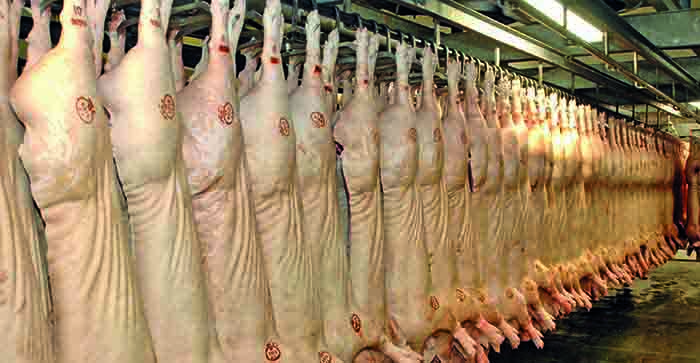UK clean pig slaughterings were 6.1% down on August 2022, while August pigmeat production was 4.2% down year-on-year.
The August slaughter figure of 876,000 head was up on the June and July figures of 813,000 and 793,000 head, respectively. And, while slaughterings have been significantly down this year, following the huge contraction of the breeding herd last year, the gap is closing.
The August deficit of 6.1% compares with 15% year-on-year reduction in July.
The statistics show an average weekly kill in August of 198,000 head, compared with 179,000 in July, 191,000 in June and 211,000 in August 2022.
Carcase weights have been rising over the summer lean – the August average of 89.3kg was up from 88.1kg in July and 88.2kg in June, and stood 0.6kg above the August 2022 figure.
This has contributed to increased pig production. The August figure of 81,000 tonnes was up from 75,000t in June and 72,000 in July, and only 4% short of the August 2022 total of 84,000t.
AHDB’s estimated GB weekly slaughterings suggest throughputs picked up in September, averaging about 163,000 pigs per week over the first three weeks, compared with about 157,000t in August.
June census
Defra’s June census showed the total number of pigs in England fell by 12% over the year to June 2023 to 3.6 million, driven by a 13% fall in fattening pigs to 3.3m head, the lowest it has been for 10 years.
The breeding herd has stabilised, however. The overall number of breeding pigs was up fractionally at 329,000 in June 2023, after losing 74,000 head in the year to June 2022, an 18% decline.
There is, however, little sign yet of significant herd recovery or substantial investment among producers, despite a significantly improved financial situation, according the NPA’s Pig Industry Group.
“There is a lot more optimism in terms of margins, but no-one is rushing to invest, with the cost of construction and interest rates where they are,” the Northern representative added.
“There should be really good optimism at the moment, but a lot of people may be still thinking about their future security and what form the independent sector is going to take going forwards,” The Midlands representative added.




